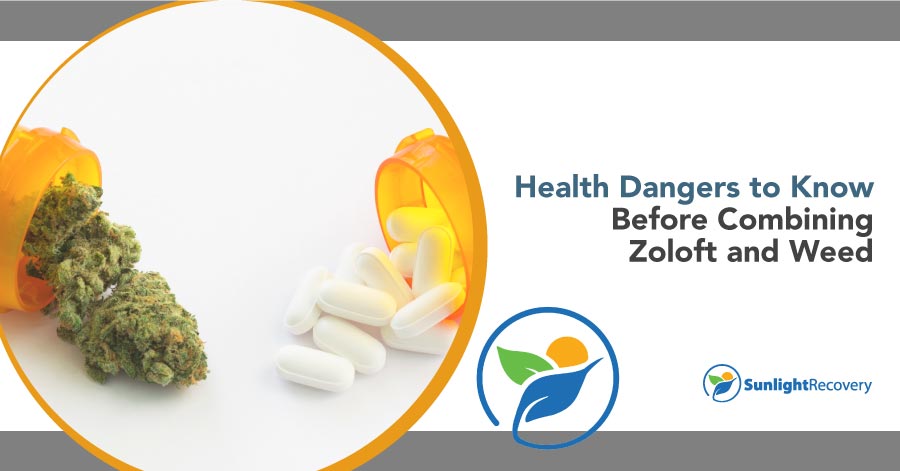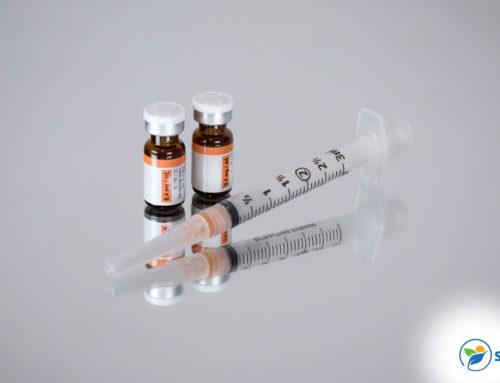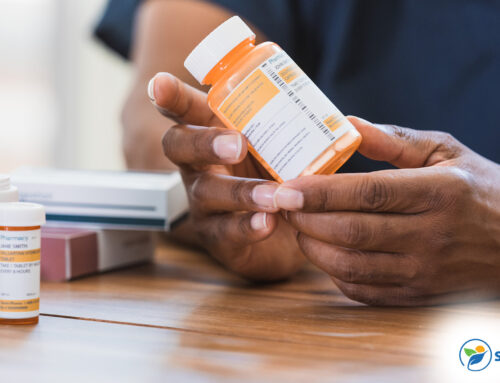What happens if you take Zoloft and weed together? This guide reviews the risks of taking Zoloft and cannabis products at the same time and why you should speak with your doctor about your habit if you’re taking an antidepressant.
What Are the Effects of Zoloft?
Zoloft is a brand name for a medication called sertraline, which is commonly prescribed for the treatment of depression, anxiety and post-traumatic stress disorder. Doctors frequently prescribe Zoloft for off-label uses as well. Off-label means that the doctor has prescribed the medication for a purpose other than what it was originally approved for.
Some potential side effects you could experience when taking Zoloft include feeling more tired than normal, sweating excessively, feeling thirsty, having trouble falling asleep at night and headaches. Zoloft has also been known to cause sexual dysfunction in some people.
When used as directed, Zoloft can increase energy levels, improve appetite, help you feel happier and prevent you from exhibiting compulsive behaviors. As one of the most commonly prescribed antidepressants available, most doctors consider Zoloft to be safe. However, long-term use of Zoloft may cause dependence, and you may begin to notice that the medication isn’t as effective as it once was and are experiencing withdrawal symptoms between doses.
Zoloft may also increase your risk of feeling depressed or having suicidal thoughts, which may sound counterintuitive given the medication’s purpose. Some people have different reactions to the medication and should alert their doctors if their symptoms worsen or if they feel like causing harm to themselves or others.
What Are the Effects of Marijuana?
Marijuana is becoming more popular as it is increasingly decriminalized and made available for medical and recreational use across the country. However, most people aren’t aware of exactly how marijuana works or what it does to the brain. The chemical in weed that makes people feel high is called THC and interacts with receptors in your brain’s endocannabinoid system.
People’s motivations for using marijuana vary, and so do their reactions. Some people could experience stronger reactions to weed than others, even if they use CBD products that don’t contain THC. The endocannabinoid system can affect mood, pain perception, appetite, focus and memory.
Using marijuana can make someone feel euphoric, relaxed, dizzy or hungry. It can also cause delusions, paranoia, memory loss and a rapid heartbeat. It’s important to note that even if you have a legitimate medical reason for using marijuana, you may need to speak with your doctor about how you’re reacting to it and explore alternatives if you’re experiencing unpleasant effects.
What Happens When You Combine Sertraline and Weed?
Doctors don’t know of any drug interactions between sertraline and marijuana yet, but Zoloft does interact with many over-the-counter and prescription medications. A study published by the National Library of Medicine suggests that using Zoloft and weed simultaneously could increase the risk of side effects and their severity. There are several reasons that taking both substances could cause issues.
Marijuana’s Impact on People With Mental Health Disorders
Using weed can reduce Zoloft’s effectiveness by amplifying the symptoms of anxiety and obsessive-compulsive disorders. Some people may become more depressed or lethargic while using marijuana, and taking THC and Zoloft at the same time could worsen this effect. When people are using weed, they might also stop taking their prescribed antidepressants because they don’t think they’re working.
Affects Liver Function
Studies have revealed that regular marijuana use affects how your body metabolizes certain medications and nutrients. This is due to the effect marijuana has on key liver enzymes that are responsible for removing substances from your bloodstream. When you take an antidepressant such as Zoloft, it builds up in your blood over time until you maintain an ideal dose with regular use.
When your liver doesn’t remove Zoloft from your blood quickly enough, more of it builds up in your blood, increasing the potential for an overdose. You could also feel the effects of the medication more strongly and any side effects you’re experiencing would become more severe.
Excessive Serotonin Production
Both substances cause your brain to produce more serotonin. This chemical helps people feel happy and is responsible for activating the reward center of the brain. Too much of it can cause spasms, nausea, mood swings, irritability, paranoia and a rapid heartbeat. Weed exacerbates this even further when it prevents your liver from removing Zoloft from your blood.
Increased Risk of Side Effects
The increased risk of side effects includes a risk of experiencing severe, rare side effects you wouldn’t encounter if you didn’t mix the two substances. People suffering from depression or anxiety may feel intense suicidal thoughts or feel like harming others. Added paranoia may fuel these thoughts and increase the risk that someone acts on these feelings before they can seek help.
How To Speak With Your Doctor About Drug Interactions
As more people gain legal access to marijuana, it’s important to have discussions with your doctor if you’re using weed for recreational or medical reasons. Your doctor may not want to prescribe Zoloft for you if you inform them that you’re using weed or CBD products. Doctors must always weigh the risks that come with treatment options against the potential benefits.
The effects that marijuana and Zoloft have on the brain counteract each other, so it’s not a good idea to combine the two. Your doctor will discuss alternatives with you or advise you to give up weed if you want to treat your mental health condition successfully.
What To Do If You’re Trying to Quit
You don’t need to fight addiction on your own. Sunlight Recovery’s team understands what it’s like to face an addiction and can help you address the root cause of the problem. Call us today at (888) 402-3647 or fill out our contact form to take the next step.






